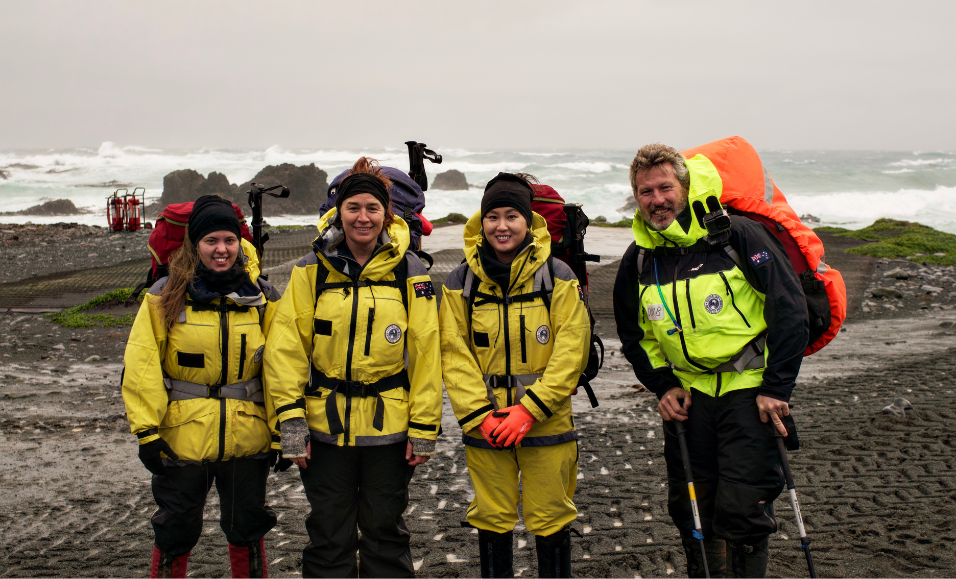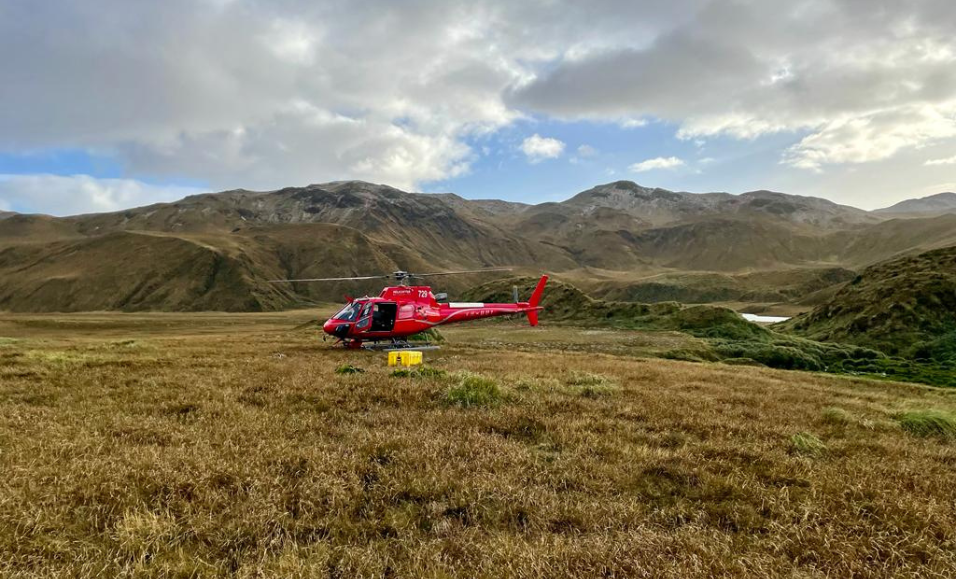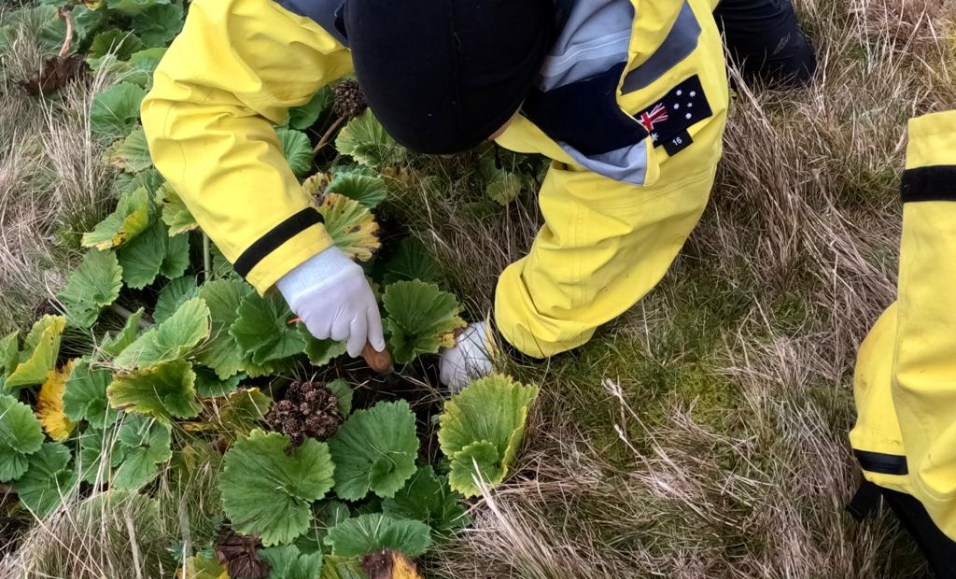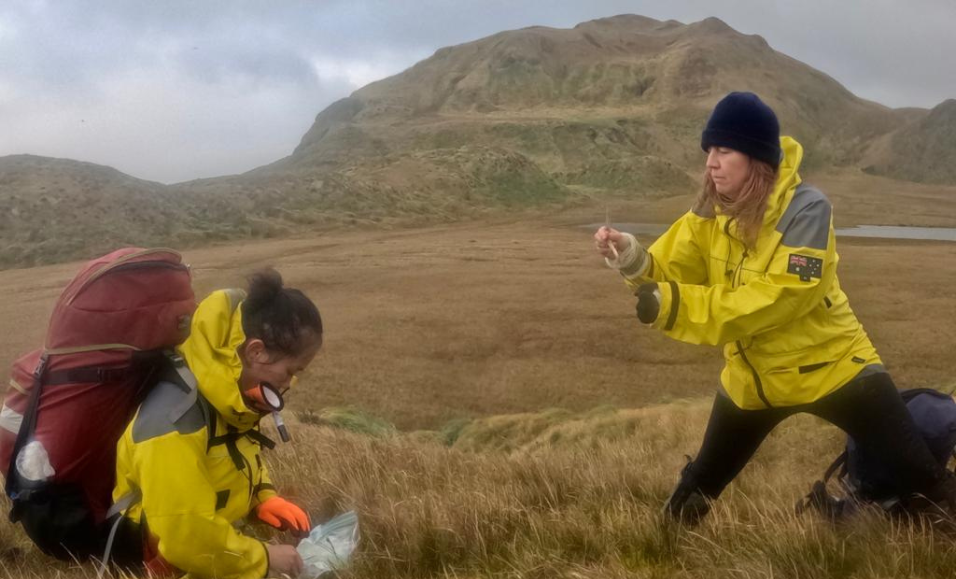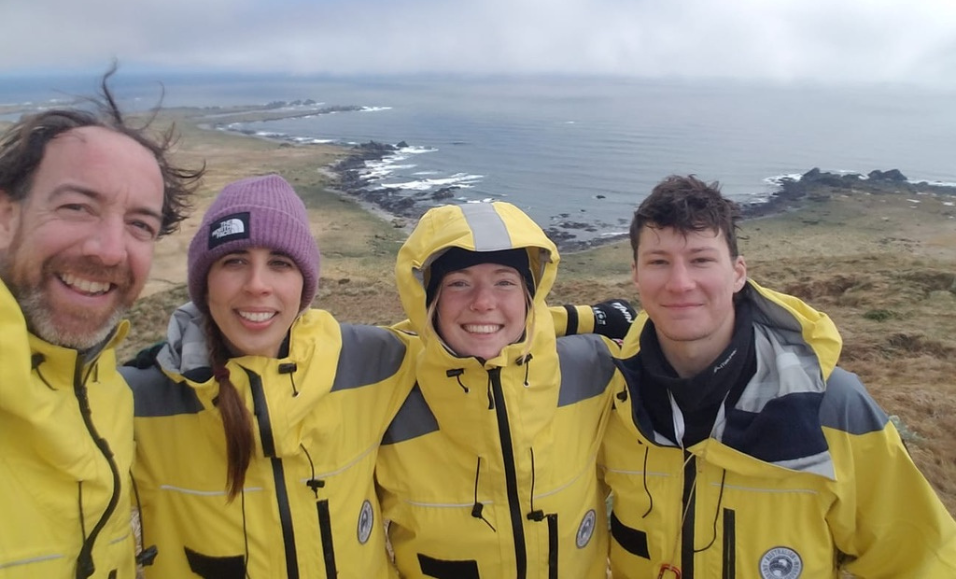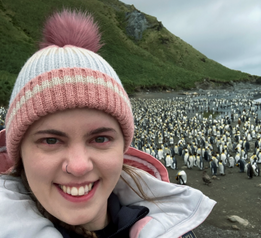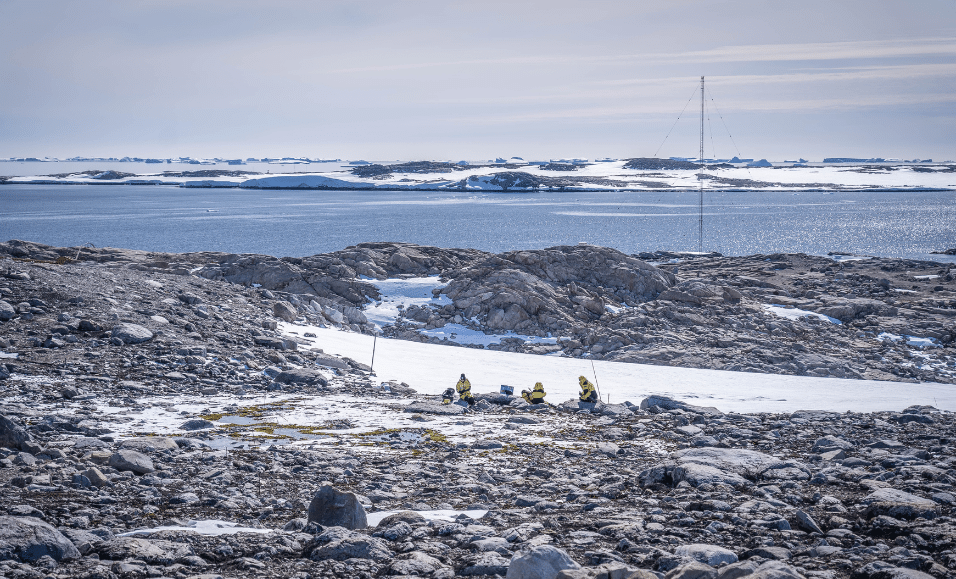Three women scientists have completed fieldwork on Macquarie Island to understand the sub-Antarctic island’s unique plants and insects and how they are responding to climate change and invasive species.
Braving snowstorms, hail, wind, rain (and some sunshine) and ~4°C temperatures, the fieldwork involved spending 8 days hiking across the isolated landmass halfway between Tasmania and Antarctica, collecting invertebrate, plant, and soil samples.
The team who are part of Securing Antarctica’s Environmental Future (SAEF), an Australian Research Council special research initiative, are the program’s first all-women field team and will return to Hobart on Monday on the RSV Nuyina with the precious cargo in tow.
Dr. Justine Shaw, a Senior Research Fellow at QUT, said that the fieldwork was a huge success.
“We have consigned frozen soil and plant samples to be transported back to Australia and we have little vials of ethanol containing invertebrates, spiders, springtails and beetles stashed away in the cargo to come back to the lab for analysis.”
Macquarie Island is a UNESCO World Heritage site, and a rare haven in the Southern Ocean for unique wildlife and plants, including hundreds of thousands of seabirds and tens of thousands of seals.
Dr. Shaw first visited Macquarie Island in 1996 and has spent over 25 years studying its plants, invertebrates, and seabirds. The last time she visited was 9 years ago, around the time cats, rabbits, rats, and mice were successfully eradicated in 2014.
“What I saw on this visit was tussock grass crawling back up the slopes towards the plateau, the Macquarie Island cabbage recovering from grazing. There are bird burrows everywhere and in the absence of cats and rats, grey petrels abound. It’s been a privilege to witness and monitor the response of this unique ecosystem to conservation management,” said Dr Shaw.
While these are fantastic signs of recovery, the researchers say there is still a lot to learn about the island and its ecosystems, particularly in the context of a changing climate and ongoing biosecurity needs.
PhD candidate Kita Williams is working to understand interactions between invertebrate groups (e.g., moths, spiders, flies, mites, springtails), and these invertebrates and plants.
“Interactions can be complex, and changes to them can affect the entire food web and overall ecosystem function. A greater understanding of the terrestrial ecosystem can support management, conservation, and biosecurity protections,” explains Williams.
For both Williams and Dr W.P. Amy Liu, a Research Fellow at Monash University, the expedition was their first to the sub-Antarctic and they felt lucky to be part of an all-women team.
“It’s important for women to have research and fieldwork opportunities that are exciting, challenging, and interesting. There are women with so many diverse skills and experiences that are valuable to Antarctic research,” said Williams.
Dr Liu says that the best part of the fieldwork was pushing her personal and physical limits, and seeing first-hand how the animals and plants live in such an extreme environment.
“The hardest part was realising that snow smashing into your face at 35 knots plus was not magical at all!” said Liu.
Now that the fieldwork is complete, the team will spend the coming months processing the samples and analysing the data back in the lab. Their research will uncover important new knowledge to better support conservation planning and protect the region’s future.
SAEF Macquarie Island Field team
- Dr Justine Shaw, Senior Research Fellow, Queensland University of Technology
- Dr W.P. Amy Liu, Research Fellow, Monash University
- Kita Williams, PhD candidate, Queensland University of Technology
